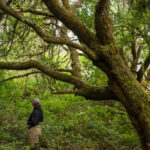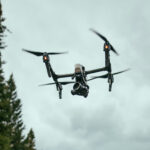It was a week of drawing lines. On one side were the 189 million Americans — roughly half of the population overall, and about 70 percent of adults — who have been at least partly vaccinated against SARS-CoV-2, the virus behind the seemingly endless Covid-19 pandemic. On the other were the millions of other Americans who could be vaccinated but have chosen not to be — and who, by numerous accounts, insist that they never will be.
That refusal — invoked variably in the name of freedom, or skepticism, or a mix of armchair science and political identity — is now providing the crucible for a resurgent pandemic, and the viral variant called delta.
Originally surfacing in India at the end of last year, the delta mutation of SARS-CoV-2 is muscular, dramatically more contagious than the original strain of the virus. Indeed, in an internal document from the Centers for Disease Control and Prevention that leaked to the press Thursday night, scientists warned that the delta variant spreads more easily than the virus that caused the 1918 pandemic, also known as the Spanish flu. Already, delta accounts for roughly 80 percent of all new infections in the United States, according to CDC data — and the vast majority of those infections are among the unvaccinated. The problem: While vaccinated individuals enjoy strong protections, so-called breakthrough infections are occurring (nearly 35,000 symptomatic cases a week, according to the leaked document).
On Tuesday, this reality at least partly nudged the CDC to modify its earlier recommendation, made in May, that fully vaccinated individuals could finally dispense with protective face masks.
In the announcement, the CDC noted that given the dominance of the delta variant, vaccinated individuals with breakthrough infections are more likely to pass the virus on than had been previously thought. Given this, the CDC now recommends that even vaccinated individuals return to wearing masks indoors, particularly in places where Covid-19 is once again on the rise.
Despite calls to resist finger-pointing, however — and despite well-reasoned explanations for why mistrust of vaccines remains so entrenched in some communities — many vaccinated Americans have had enough. “The only people who are not vaccinated are just assholes,” former basketball star and current sports announcer Charles Barkley told CNBC, channeling widely held frustrations. President Joe Biden parsed his words more carefully while announcing new vaccination requirements for millions of federal employees on Thursday afternoon. “This is not about red states and blue states,” he said. “It’s literally about life and death.”
According to The Associated Press, some experts were hopeful that the Biden administration’s move, which spurred the Department of Defense to require its personnel to provide proof of their vaccination status, might nudge more private companies to follow suit — and perhaps enough momentum to suppress a virus that otherwise continues to find a ready nursery for both transmission and mutation among the unvaccinated.
On that point, CNN host John Berman seemed to speak for many Americans in an interview with CDC director Rochelle Walensky on Thursday. “You can understand the frustration,” Berman said, “in those of us who are vaccinated saying ‘Why the hell do I have to pay the price for this?’”
Also in the news:
• On Monday, an investigation at Motherboard revealed that an AI-based gunshot surveillance service is altering data at the request of the police. ShotSpotter pulls data from hidden microphones, identifying the source and sending alerts on potential gunshots to law enforcement, and it is used in at least 100 U.S. cities. In April, defense attorneys in an ongoing criminal case in Chicago submitted a motion to exclude evidence from ShotSpotter, which police say placed defendant Michael Williams at the scene of a murder. Williams’ attorneys called ShotSpotter’s accuracy into question, arguing that the original data used in the case logged a location one mile away from the murder, and identified the sound as a firework. After a police report on the shooting came in, a ShotSpotter analyst manually changed the source of the noise to a gunshot; months later, another analyst changed the location. Rather than respond to the motion, prosecutors dropped ShotSpotter evidence from the case. According to Motherboard, ShotSpotter analysts in other cities have similarly altered data, and there are open questions as to how well the system’s algorithms work. The company maintains that its service is accurate. Critics say there’s no way to confirm that. An attorney at the MacArthur Justice Center told Motherboard: “Right now, nobody outside of ShotSpotter has ever been able to look under the hood and audit this technology.”(Motherboard)
• A coalition of five public universities in France announced this week that, due to concerns about risks to researchers, they would voluntarily suspend research into prions — tiny, misfolded proteins that can damage brain tissue. Prions are directly linked to neurodegenerative diseases in humans and other mammals, such as Creutzfeldt-Jakob disease (CJD) and Bovine Spongiform Encephalopathy (BSE), which is sometimes called mad cow disease. Worries about infection in laboratories arose in France after the 2019 death of a 33-year-old lab worker who died of a form of CJD some years after she accidentally cut her hand while working with prions. More recently, a retired lab worker, who had handled prions in the past, was diagnosed with the disease. Her illness led directly to the current three-month moratorium, which the universities said was needed both to better assess the dangers and, if needed, to put in place new safety protocols. Meanwhile, the family of the lab worker who died, Émilie Jaumain, has filed a lawsuit against France’s National Research Institute for Agriculture, Food, and Environment, charging that a failure to properly train and protect workers earlier played a direct role in her death. (Science)
• According to a recent survey conducted by the Royal Astronomical Society (RAS) in London, nearly half of respondents reported problems with bullying and harassment in the field. RAS diversity officer Aine O’Brien presented the results in a virtual talk last week at the National Astronomy Meeting, which found that out of the respondents, those in marginalized groups were especially vulnerable to problematic behavior. The survey was conducted last year and polled 661 researchers, roughly 44 percent of whom stated they had experienced unpleasantries within the field in the last two years. “Patterns of bad and harmful behavior in STEM communities limit people’s feelings of belonging and inclusion,” said Ben Britton, a materials scientist at Imperial College London and a trustee of an organization that supports LGBTQ+ individuals working in STEM professions, in response to the results. Approximately 50 percent of LGBTQ+ identifying researchers reported bullying and harassment from colleagues. The percentage was even higher for women at roughly 53 percent and higher still for people of color at around 65 percent. The chair of the U.S. National Science Foundation’s Astronomy and Astrophysics Advisory Committee, Priyamvada Natarajan, said regarding the findings: “We have to create and sustain a community that has zero tolerance for bullying and discrimination.” (Nature)
• And finally: A study published in Nature this week claims to have identified skeletons of ancient sea sponges fossilized in a Canadian reef, which, if confirmed, would be the oldest animal fossils ever found. The study was conducted by Elizabeth Turner, a geologist at Laurentian University in Canada, who first discovered the fossils in the 1990s. Citing research from the past decade, Turner argues that the complex patterns found on these fossils, dating 890 million years, resemble the skeletons of horny sponges. But some scientists are skeptical of Turner’s conclusion, arguing that the “paper doesn’t do enough to single out sponges as the source of the fossils,” according to Science. The scientists argue that that the complex structures described by Turner could have been left by non-animal organisms. However, other scientists, such as Allison Daley, a paleontologist at the University of Lausanne, believes that Turner’s work has merit and should be investigated further. “It’s important to understand these ancient ecosystems,” Daley told Science, “including the structures described in this paper, whether or not they are sponges.” (Science)
“Also in the News” items are compiled and written by Undark staff. Deborah Blum, Brooke Borel, Lucas Haugen, and Sudhi Oberoi contributed to this roundup.










